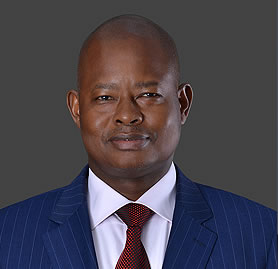Why local representatives of foreign companies are walking on egg-shells

When the Business Daily broke the news that the Director of Public Prosecutions had instituted criminal charges against the lawyer involved in the registration of CMC Di Ravenna-Kenya Branch, the company implicated in the Arror/Kimwarer dams saga, commercial lawyers went into a collective panic.
Irrespective of the outcome, prosecution for any offence, especially corruption, is a deeply painful experience. Being linked to a crime that one had nothing to do with inflicts irreparable reputation damage to the person concerned. It causes immense embarrassment to family, friends and business associates. Since mud sticks, especially in this era of the internet which never forgets, an ill-founded prosecution can potentially ruin an otherwise promising professional career. The decision to prosecute should therefore not be taken lightly only to appease the gods.
In the wake of the Arror/Kimwarer dams scandal the DPP had moved swiftly to charge various persons with numerous offences relating to an alleged conspiracy to defraud the country millions of shillings and fraudulently acquiring public property. The accused persons included the lawyer who had registered the Kenyan branch of the foreign company and who acted as its authorised person.
The lawyer challenged the DPP’s action in the High Court on grounds that he was improperly charged since he was not a director, shareholder or officer of the company; that his involvement was limited to being the company’s “authorised person” pursuant to the provisions of the repealed Companies Act (Cap. 486).
In response, the DPP contended that by virtue of that role (as well as being a director which the court found to be untrue), the lawyer was culpable for the actions of the company including criminal offences committed by it and its officers.
In a judgment delivered by respected Judge Mumbi Ngugi on 12 May 2020 in the case of Richard Mabele v. The Director of Public Prosecutions & 2 Others (Anti-Corruption &Economic Crimes Division, Petition No.4 of 2020) the High Court halted the lawyer’s prosecution on grounds that it was an abuse of the court process and an improper exercise of the DPP’s discretion conferred under the Constitution.
The matter of lawyers acting as local representatives of foreign companies in Kenya has become a hot topic since the enactment of the Companies Act, 2015. The repealed Act simply required a foreign company seeking registration in Kenya to appoint a Kenyan resident as its ‘authorised person’ for the limited purpose of accepting on its behalf the service of process and any notices required to be served on the company.
In a quantum leap from the above position, however, the Companies Act, 2015 redefined the role and renamed it ‘local representative’. It also imposed a raft of onerous responsibilities and penalties on the holder of the position. He became answerable for all acts required of the company under the Act and personally liable for any penalty imposed on the company for its failure to comply with the provisions of the statute.
It is instructive to note that despite these enhanced obligations and penalties, nowhere does the Act suggest that the local representative, by virtue of that appointment only, is liable for the criminal activities of the foreign company in the absence of evidence directly linking him to such activities.
Indeed, the Companies Act, 2015 provides that an officer of a company is only liable if he authorised or permitted the offence, participated in it or failed to take all reasonable steps to prevent it. Other laws including the Penal Code reiterate this general principle.
There is a vast difference between the position of a local representative and that of a director. The two positions do not bear equal responsibility in relation to the affairs of the company and the terms should, therefore, not be used interchangeably. As a matter of practice, local representatives are generally not directors of the foreign companies that they represent.
While a director participates in every decision and action of the company and takes responsibility for such decisions and actions, a local representative is generally not involved in the management or affairs of the foreign company and is not even entitled to attend its Board meetings (unless he also happens to be a director).
Most foreign companies seeking to establish in Kenya would normally request the lawyer involved in the registration of the branch to act as the local representative since at this early stage they have not identified other local contacts. Indeed, many use the lawyer’s office as their registered office. Normally, there is no intention that this mandate will go beyond receiving service of process on behalf of the foreign company and ensuring that the company remains compliant with local statutory obligations including the signing and filing of the relevant statutory forms.
Therefore, in the absence of credible evidence linking the local representative to the day-to-day affairs of the foreign company or the specific alleged offence, he should not, by virtue of holding such position, be an automatic suspect in every crime that the company has allegedly committed.
Although the High Court rightly quashed the prosecution of the lawyer in the above case, it employed language which is likely to prolong the nightmare of local representatives for the foreseeable future.
While stating correctly that like everyone else lawyers are not immune to prosecution, the court went ahead to state that they are liable to prosecution for offences committed by companies in which they serve as directors or local representatives or where the evidence shows that they were involved in the matters forming the subject matter of the prosecution. To illustrate the point, the court stated that had the petitioner been disclosed in the statutory forms as a director and local representative or had there been other evidence such as account opening forms showing that he was indeed a director or local representative of the companies involved, the court would not have hesitated to validate his prosecution.
The implication of this language is that being a local representative and signing company documents in that capacity exposes one to the risk of prosecution yet the minimum test of whether to prosecute or not should be the level of the person’s involvement in the alleged crime. In the absence of evidence to that effect, the fact of being the local representation should not count in this determination.
The fundamental issue arising from the DPP’s approach in the Richard Mabele case is that if acting in the registration of a company or being its local representative becomes a ground for prosecution then all lawyers who routinely undertake those duties in the course of their professional work will be subject to prosecution whenever their client companies commit an offence. As Justice Ngugi found, there was no evidence linking the lawyer to the alleged crimes yet the DPP found him prosecutable on account of his professional roles.
Until this position is clarified, professionals who are frequently asked by foreign companies to act as their local representatives will continue to walk on eggshells as investors find fewer willing takers for this mandatory role.
The article was also featured on the Business Daily on 1 June 2020 and can be accessed here.


